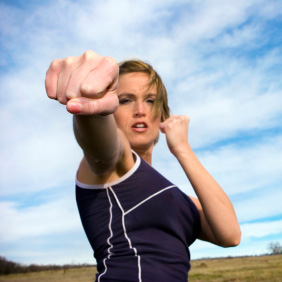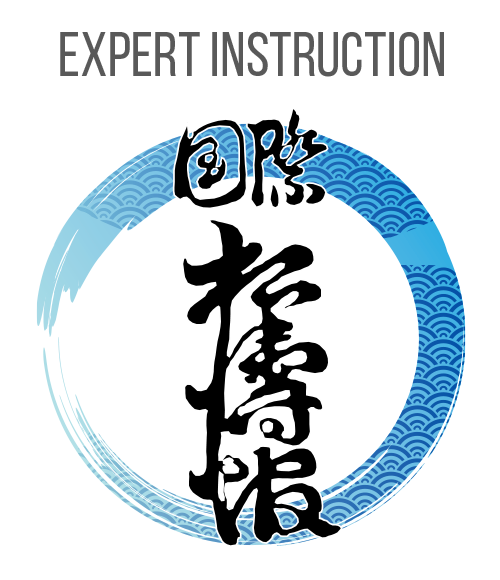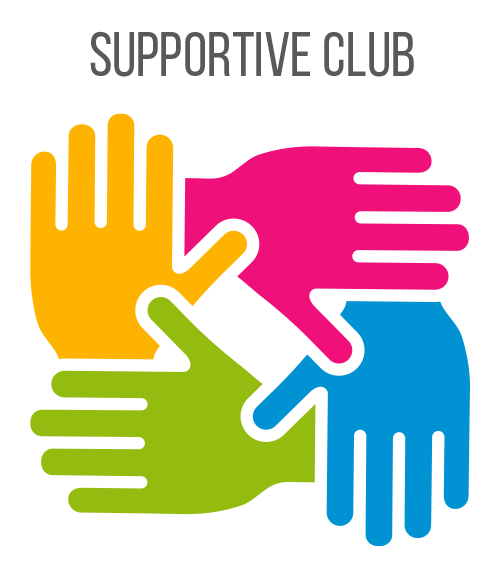Embracing Traditional Shotokan Karate-Do for Effective Self-Defence

In today's fast-paced world, personal safety is paramount for many. Numerous martial arts schools and self-defence programs have sprung up with the rise in awareness about self-defence. However, few can match the time-tested effectiveness and holistic benefits of traditional Shotokan Karate-Do. This ancient martial art, rooted in discipline, precision, and mental fortitude, offers unparalleled tools for self-defence, making it an excellent choice for individuals of all ages and backgrounds.
The Essence of Shotokan Karate-Do
Shotokan Karate-Do, developed by Gichin Funakoshi in the early 20th century, is one of the world's most widely practised styles of karate. It emphasises solid and linear techniques, deep stances, and powerful strikes. But beyond the physical prowess it instils, Shotokan is a way of life. It teaches practitioners to harmonise body and mind, fostering a sense of inner peace and confidence.
Practical Self-Defence Techniques
- Powerful Strikes and Blocks: Shotokan Karate-Do trains individuals to deliver powerful punches, kicks, and strikes precisely and quickly. The focus on basic techniques (kihon) and forms (kata) ingrains muscle memory, ensuring that movements become instinctual in a self-defence scenario. The ability to block and counterattack efficiently is crucial in swiftly deflecting and neutralising threats.
- Situational Awareness: A core component of Shotokan training is the development of situational awareness. Practitioners learn to stay alert and mindful of their surroundings, enabling them to detect and avoid potential dangers before they escalate. This heightened awareness is critical to self-defence, allowing one to prevent conflicts rather than confront them.
- Mental Discipline: Shotokan Karate-Do emphasises mental toughness and emotional control. Through rigorous training, practitioners can remain calm and composed under pressure. This mental discipline is invaluable in a self-defence situation, where staying focused and making quick, rational decisions can be the difference between safety and harm.
Holistic Benefits Beyond Self-Defence
- Physical Fitness: Regular practice of Shotokan Karate-Do enhances overall physical fitness. The rigorous training routines improve cardiovascular health, increase strength and flexibility, and promote better coordination and balance. A fit, healthy body is naturally more resilient and better equipped to handle physical confrontations.
- Confidence and Self-Esteem: The journey through Shotokan Karate-Do is continuous improvement and self-discovery. As practitioners progress through the ranks and overcome challenges, they build confidence and self-esteem. This newfound confidence deters potential attackers and empowers individuals to face life's challenges with a positive mindset.
- Respect and Discipline: Shotokan Karate-Do instils a deep respect for oneself and others. The strict code of conduct and emphasis on discipline shape individuals into respectful and responsible members of society. This respectful demeanour can de-escalate potential conflicts and foster harmonious interactions.
Community of Support
Joining a Shotokan Karate-Do dojo means joining a supportive and encouraging community. Instructors and fellow students share a common goal of personal growth and self-improvement. This camaraderie provides a network of support, motivation, and friendship, enhancing the overall learning experience.
Why Choose Bushido Karate Club

Our head instructor, Renshi Aaron Kenneally has been trained directly by Soke Hirokazu Kanazawa 10th Dan SKIF Japan, ensuring expert tuition.

Acquire globally renowned assessments and the opportunity to attend seminars led by top-tier instructors affiliated from SKIF International in Tokyo, Japan.

At our club, fostering a secure and nurturing atmosphere is our utmost priority, as we believe in providing a robust support system to help you achieve your objectives.

Have the opportunity to compete domestically, and to earn your place in representing Ireland at the SKIF World Championships and SKIEF European Championships.
Bushido Karate Club Locations & Training Times
Bushido Carrigtwohill
Mary Geary Childcare
Carrigtwohill, Co. Cork
T45 XR40, Ireland
Training Times
Monday & Thursday
19:00-20:00 - All Grades
20:00-21:00 - Advanced Class
Bushido Douglas
ICA Hall, Church Road
Douglas, Co. Cork
T12 KP79, Ireland
Training Times
Wednesday & Friday
19:00-20:00 - All Grades
20:00-21:00 - Advanced Class
Frequently Asked Questions
Questions about Membership and Training Fees
- Students who pay a one-month or two-month training fee are covered for that calendar month(s).
- When you pay for training fees, you are paying for that period and not a per-class fee; it is up to you how much or little you train during this period. We recommend training 2-3 times per week.
- Classes are available in all locations, and we encourage you to attend as many classes as possible to get the best value for money.
- Bushido Karate Club sends a PayPal Invoice when your pay period is up.
- Bushido Karate Club understands that financial circumstances can change from one month to the next, so students can switch payment plans any time they wish at the end of their current payment. Let us know if you want to change plans.
- The bigger plans will offer the most significant saving, and we have a new Family Plan offer for families with two direct family members or more training.
- Training Fees are required all year round, irrespective of being away for vacation; please note that failure to maintain your training fees will forfeit your membership to the club.
- All joining fees are invoiced via PayPal.
- All recurring training fees are invoiced via PayPal.
- PayPal is very secure and doesn't require a PayPal account, you can input your card details and pay securely and instantly.
Questions about the Club
Bushido Karate Club is a Traditional Shotokan Karate Club based in Cork City Ireland. The club was formed in 2010 and has multiple branches in Cork City. The club caters for both kids and adults and has produced students who have represented Ireland at world and european championships level with some reaching the final and winning Bronze and Silver medals.
Bushido Karate Club is 100% compliant with all Safeguarding and Garda Vetting requirements as set out with The National Vetting Bureau (Children And Vulnerable Persons) Act 2012. All our Instructors / Coaches and any adults who supervise children or vulnerable persons are Garda Vetted and completed the relavent Safeguarding courses for their position within their club.
Bushido Karate Club is 100% anti-bullying and it is never tolerated in our dojo. A primary aim of Bushido Karate Club is to prevent bullying in all its forms. Bullying is unacceptable and Bushido Karate Club has no tolerance for bullying behavior. All members are expected to behave in accordance with Bushido Karate Club’s codes of conduct to ensure every member, especially young people are safe and secure.
Children & Karate
Our training is specifically designed to develop your child both physically and mentally to ensure they excel and unlock their potential. Karate-Do training will teach your child to become more respectable, have increased concentration, build self-confidence and resist peer pressure.
We at Bushido Karate Club have found that children with slight behavioural and medical issues have benefitted from learning Karate-Do however, children with more severe behavioural or medical problems can find it challenging. Karate is not a sport. Instead, it is more closely related to a complex education environment requiring focus, discipline, obedience, technical knowledge, coordination, hand-eye coordination and a good grasp of left and right. While we do our best, sometimes the child's individual needs outweigh what we can offer in our dojo. If this happens, you may have to choose a more appropriate activity for your child. Unfortunately, we are not medical experts, nor have any training in dealing with children with any disabilities or severe behavioural issues. In our experience, we have seen that our regular dojo discipline and training can help some children with these types of challenges. Children with sound sensory issues could find the class unsettling when the students perform a loud "Kiai" (Japanese Shout), which can be very loud with 20-30 kids performing this together. If you wish to contact us regarding the above or have any questions, we will be happy to talk with you and set the correct pre-expectations with you.
The difference between sport and martial art is that everything that they learn in training will improve and apply to the outside world. Karate-Do is a Martial Art and is one of the most traditional and disciplined of all the martial arts. Through discipline and encouragement, this way of training has resulted in children excelling at Karate, School and Home. They begin to listen more and become more respectful towards parents and teachers. We at Bushido Karate Club understand the values of learning and study, and we want your children to excel at Karate-Do and their studies. Our motto at Bushido Karate Club is Train Hard and Study Hard..
Questions about a Karate Class
Karate consists of three aspects:
Kihon involves the systematic training of various blocks, strikes, punches and kicks. Kihon is where you learn the techniques you will use
Kumite is the application of the techniques learned in Kihon. The sparring is non-contact, being carried out with great control.
Kata are formal exercises consisting of pre-determined defensive and offensive movements, performed in a sequence. They are performed by oneself against a series of imaginary attacks by several opponents. The secrets of Karate are hidden in these beautiful compositions of lethal movement. They are the means by which the fundamental techniques of Karate are transferred to each generation. There are 27 kata in Shotokan - a new kata or series of kata are learnt after each grading.
As all Karate suits are different sizes we order your suit once we receive your club membership application however, If your club membership is not yet completed, then you only need to wear a comfortable tracksuit bottoms and t-shirt.
Historically there were no coloured belts in Karate-Do or gradings. You had a white belt and trained for years and then were given your black belt. This type of thinking of just training and not grading, would not have worked in the western world so Sensei Gichin Funakoshi spoke to his friend a Judo founder Sensei Jigoro Kano and the colour belt system was created as Judo had been using coloured belts since 1880s
In modern karate, Beginners wear a white belt. Depending on the student, Students have an opportunity to grade every 3 months up to Black Belt which if they graded every three months could be 2-3 years but there are other criteria would be taken into account such as the students ability, age, commitment to training and many other factors that would be determined by the Dojo Instructor / Examiner. In our eyes and reality, obtaining a black belt is merely the start of one's training, not the culmination.
Karate is one of the most balanced and complete ways of keeping in good physical condition. Karate incorporates the use of the entire body in which legs, hips, spine, shoulders and arms are co-ordinated to develop balance, flexibility, poise, speed, strength and stamina. No other form of training uses as many parts of the body to such an extent. Karate is not seasonal and so one's condition can be maintained throughout the year.
Other forms of training, where exercise for the sake of exercise is done, become a chore after the first enthusiasm passes and are invariably dropped. However, Karate becomes more interesting and rewarding as you progress, without any limit. Even after decades of training, students will still be learning and improving their techniques - this is very rare in any sport which is what makes traditional martial arts very special
Questions about Karate
Karate is a Traditional Japanese Martial Art and is practiced by millions of people globally. It is one of the most well-known martial arts and well respected. Karate encompasses whole body movements which develop balance, flexibility, co-ordination, speed and power. This is achieved through the constant practice of the basic movements (Kihon) which, due to their variety and complexity, can be considered as a complete art form themselves.
Karate is not a sport. Instead, it is more closely related to a complex education environment requiring focus, discipline, obedience, technical knowledge, coordination, hand-eye coordination and a good grasp of left and right. It also requires a lot of dedication and commitment from both the Parents & Student. Most students train at least 2-3 evenings per week.
Karate-Do training is very disciplined, but for Karate Kids, we try and keep it fun. As many karate techniques require flexibility, it is essential to perform a warm-up before training. Specific Traditional Karate-Do training then begins.
Bushido Karate Club is a traditional dojo; however, we allow all our members access to take part in competitions. Bushido Karate Club has a solid history in producing some of the top karate competitors in Ireland including World medalists. Competition is not a requirement of being a member in Bushido Karate Club, but we do encourage students to compete.
Karate is based on respect, discipline, relaxation and calm awareness. An aggressive, emotional attitude is contrary to the philosophical and practical nature of the martial art. Funakoshi said that "The spirit of Karate is lost without courtesy". In Karate one learns the values of kindness, sincerity and self-control. The students are taught to be bold and gentle, and to have confidence and humility. These contrasting combinations eventually lead to total harmony of body and mind. This is the true aim of Karate.
Karate is the ultimate in unarmed self-defence. It is designed to disable with one move; it has techniques against all forms of attack and has been developed through centuries of harsh experience. Most importantly, it trains the mental and emotional skills of combat, as well as the physical. Strength and size are not important in Karate - it can be performed well with whatever strength you have, by relying on technique, speed and co-ordination. Karate teaches you how to avoid possible confrontations - it is far better to de-fuse or to avoid a dangerous situation than to confront it.
Karate is for everyone - men, women and children; old or young; fit or not. Every girl or women should know what to do if attacked. Women in the lesson get the same training as the men. Children can benefit from the self-discipline, and the skills acquired will improve their self-confidence and character. The training is non-competitive. Older people have gained their black belts after 60 and have practised the art into their 80's.
Older students receive the same training as younger people, although naturally the instructor will not demand the same level of endurance. Everyone's training is with oneself - the instructor only expects the best that you can achieve; there is no competition with anyone else in the lesson. You can adjust your training to suit your own stamina and abilities, but the harder you train the more you will benefit.
Karate is a means of developing friendship. At its best it is also a means of gaining self-understanding and self-confidence. It is an art form through which one can express individuality. Karate is also a bridge to other cultures and times, and it establishes a contact with one's mind and body that is rare in Western education. The true rewards lie in the improvement of mind, body and character. Without this threefold development, mastery of the techniques will be impossible. Great personal effort and mental concentration are needed to learn Karate, but the rewards are enormous.
Book a Free Trial Class at Bushido Karate Club
Bushido Karate Club is currently accepting new members. Contact us today to book a trial class in Douglas or Carrigtwohill and begin your karate journey. Places are limited so call today to avoid disappointment.
Tel: +353876307006






